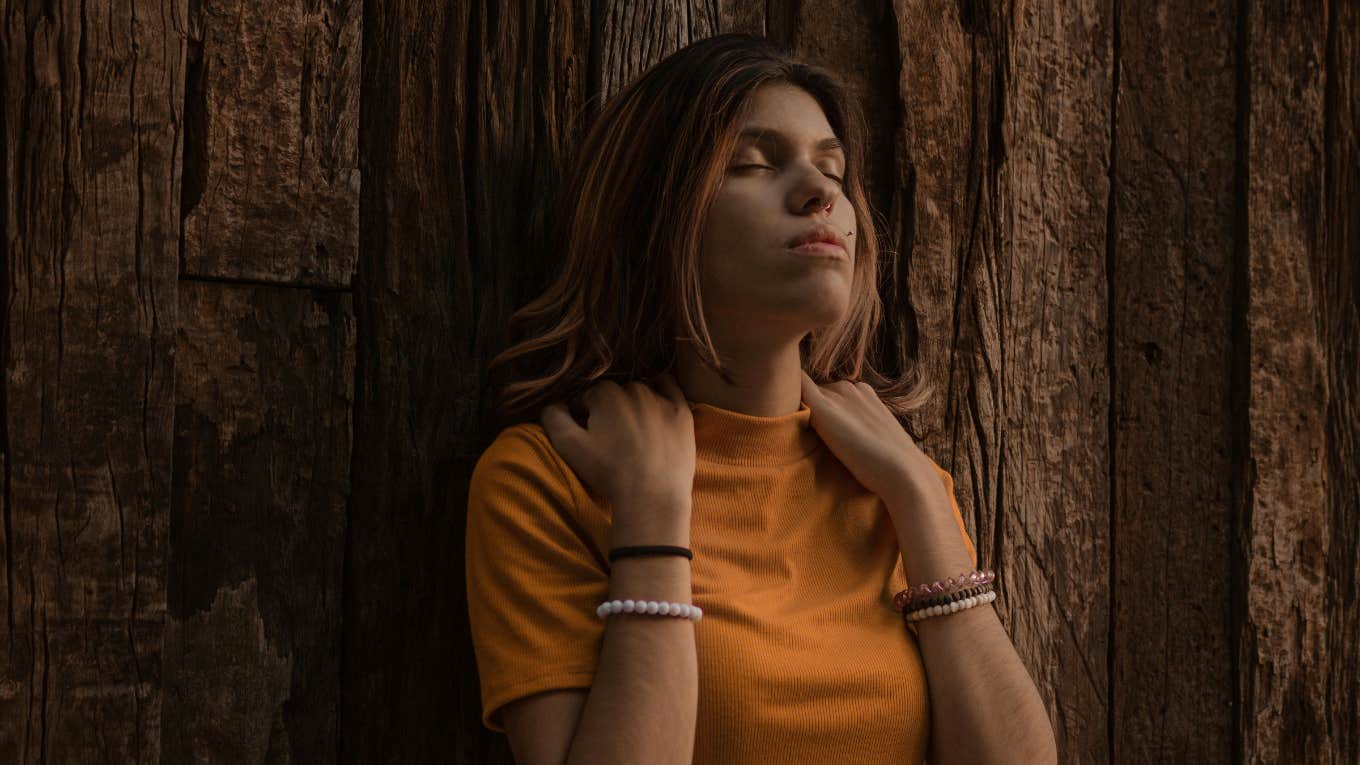How Women Are Reclaiming Their Truth After Years Of Silence In The Church
What happens when you're forced to push down parts of who you are?
 Thuanny Gantuss / Pexels
Thuanny Gantuss / Pexels It's a wonder we've managed to survive so long in a world where women are often molded from childhood to exist in a certain type of way, where our very being is dictated by prioritizing the comfort of others over ourselves.
Arielle Estoria, who is an author, spoken word poet, as well as a model and actress recently published her first solo book of poetry, The Unfolding: An Invitation to Come Home to Yourself gave an enlightened view of just how damaging these roles can be during an episode of the podcast Open Relationships: Transforming Together.
Why telling the truth often causes women to feel 'crazy'
Estoria, ever the eloquent speaker, admits that when women speak our truth, it comes from a place of courage, and she implores us to be courageous.
"Why would our natural go-to not be telling the truth?" she implores host Andrea Miller. "We have to be willing to have conversations — and also [be] willing to risk and fail for a moment and then pivot to where we need to."
RELATED: The Ultimate Guide To Being A Delightfully Bad Woman
Telling the truth about religion
In a bold and honest moment, Estoria shares about how she felt confused and isolated from her identity as a Black woman living in America. She explains that it was clear throughout her life in the church that she needed to see herself as a Christian woman in America first. She could be a woman second — with everything else following, including race, gender identity, and expression.
This statement affected me, personally. As someone who grew up in the Christian church and is now working through the levels of trauma that experience left me with as an adult (especially as someone who is doing the work of coming to terms with my sexual orientation), I relate. I often felt I couldn't be anything else other than a religious and devout Christian, which was expected of me. In being those things, the other parts of myself were meant to be invisible.
It was as if there was no room to move and discover a different version of myself, or just embrace all of the other parts of my personality and what makes me me — including being not only queer, but a Black woman. But those old expectations meant having to make excuses for my identity, as that was the mold that was expected of me as someone in the church.
"It wasn't until college that I really started to grapple with, 'What does it mean to be Black here? What does it mean to be Black in my body, and what does it mean to be Black at this private Christian university of predominately white people?" Estoria shared. "And now, what does it mean to be Black in a setting of political uproar and social justice?'"
Telling the truth about Christianity and our bodies
"I think for me, a lot of what I was given was routes of disembodiment, and that included my body, that included my Blackness, that included my sexuality and femininity," Estoria admitted.
"Me tapping back into my body, I think the first note I got was, 'How do we expect to input so much hate?'", she shares. "Hate towards our bodies, hate towards who we are, hate towards how we operate because that's ultimately what the language is around sin and purity culture was. It was a self-hatred.
"How do we expect to input all of this hate and expect that our output is going to be love?"
Purity culture in religion is just one way that women are often stifled, but it ends up manifesting in other areas of a woman's existence because of how deeply embedded it is in our society. We are trying to be everything to everyone else, we're trying to fill these "roles" that only exist so that we don't discover the truth of who we are. Then, when we do, we feel crazy, lost, and disconnected from ourselves, as if we've been living a facade for so long that we no longer recognize our reflection in the mirror.
It's a constant battle to break free from these constraints, whether it's happening from experience in the church or from outdated traditional ideologies that have been shoved down our throats since birth. But as we take each step toward truth, we get to reclaim just a tiny bit of ourselves each and every time.
Nia Tipton is a Chicago-based entertainment, news, and lifestyle writer whose work delves into modern-day issues and experiences.

